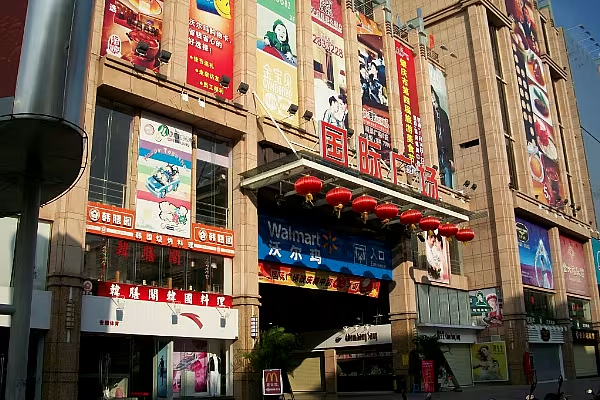Chinese President Xi Jinping has vowed to slash pollution and prioritise living standards over unbridled growth. On the other side of the globe in Bentonville, Arkansas, the world’s largest retailer is signing on.
On Thursday, Walmart committed to cutting 50 million metric tonnes of carbon emissions from its Chinese operations - attempting to play good corporate citizen in a country where it’s making increasingly ambitious business investments.
China is now the only nation where the retailer has made a specific emission plan public. Walmart says the planned reductions are equivalent to emissions from the annual electricity consumption of 40 million Chinese households.
In recent years, more foreign companies have launched environmentally friendly products in China and or extended benefits for workers to stay in Beijing’s good graces. Starbucks provides health insurance that extends to Chinese employees’ parents, and Volvo is investing millions in a China factory that will make high-performance electric cars.
China’s leaders have had to introduce more environmentally friendly policies to tackle cities that are often shrouded in smog, as well as rising incidence of diseases like lung cancer.
Xi has appeared to take a bigger international role on the environment even as US President Donald Trump has withdrawn from the Paris Agreement. Winning in China is increasingly important to Walmart as it slashes prices in its US stores to ward off competition from Amazon.
The retailer believes its goals are in line with Beijing’s priorities. “There’s definitely a positive attitude from the Chinese government about the goals we are putting in place,” said Laura Phillips, the company’s Arkansas-based senior vice president of sustainability, said over the phone.
Global Pledge
The 50 million metric tonne goal is to be reached by 2030, and is only about 5% of an overall pledge Walmart has made to cut a billion tons of emissions worldwide by 2030.
In China, Walmart’s plan involves retrofitting factories with energy-efficient facilities and lighting, and working with suppliers to switch to renewable energy.
Because so much of what the world consumes is made in China, cutting emissions in the country can have a big global impact, said Justin Wu, head of Asia-Pacific for Bloomberg New Energy Finance. “For corporations, the holy grail of achieving something significant in emissions reduction is to do something significant in China,” he said.
Walmart says the latest goal builds on an existing factory energy efficiency program that saves participating Chinese factories $40 million in expenses annually.
A major challenge for Walmart will be China’s regulations that prevent corporations from directly buying renewable energy from producers, which is possible in the US and some parts of Europe.
In China, solar or wind energy producers channel their output into the same power grid as fossil fuel producers. Customers then buy electricity from the power grid without knowing what part of it is from renewable sources.
Walmart said it plans to expand the number of on-site solar systems it has in China, while also working with developers to bring large-scale, off-site projects onto the grid. That way it can help create new sources of renewable energy, even though it won’t be able to guarantee how much of that power its suppliers and stores will use.
Walmart’s move may spur other corporations to set carbon emissions reduction targets, said BNEF analyst Wu.
“If Walmart influences Alibaba to say it wants to do something, or if this means that customers shop at Walmart in China because it’s doing this instead of a Chinese supermarket, then all of this put together can have a meaningful result,” he said.
News by Bloomberg, edited by ESM. Click subscribe to sign up to ESM: The European Supermarket Magazine.














